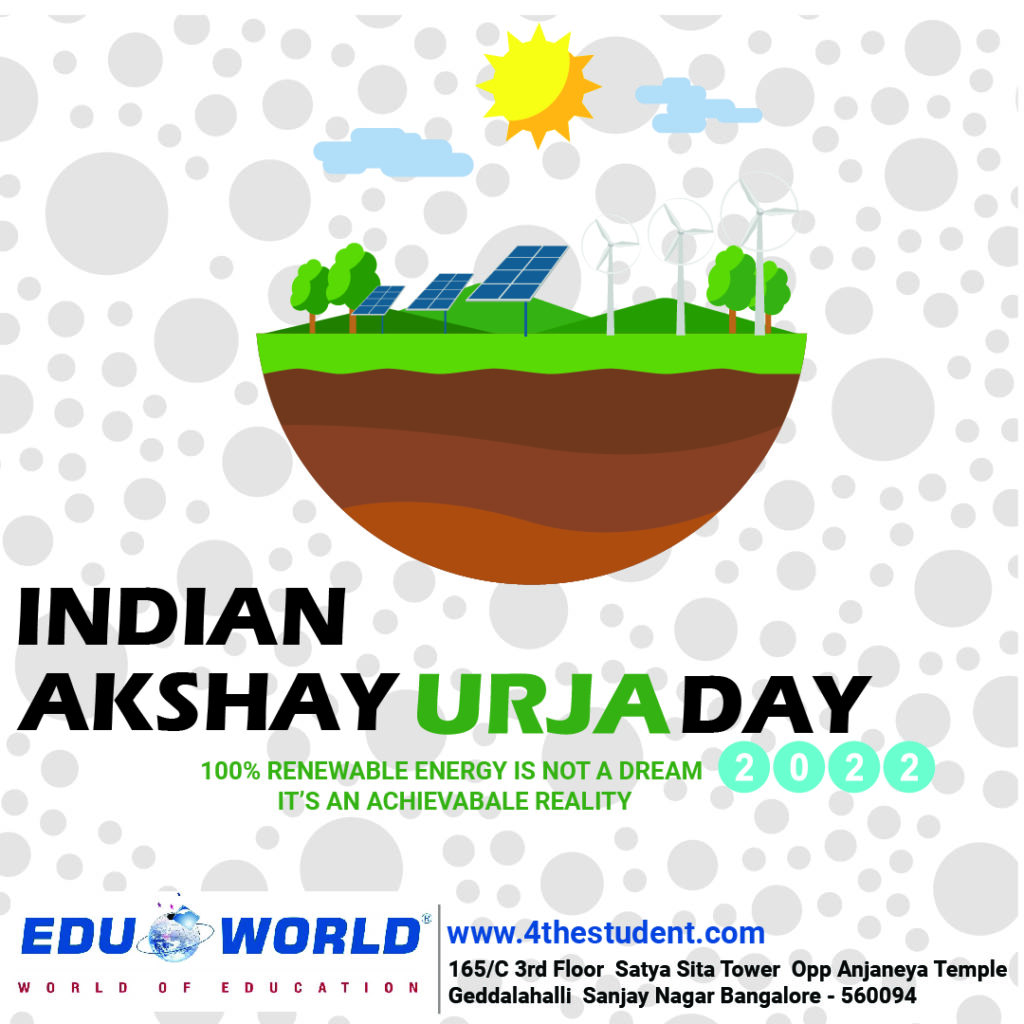Renewable Energy Day is also known as Indian Akashya Urja Diwas. Indian Akshay Urja Diwas is celebrated on the 20th of August every year. This day marks the birthday anniversary of Rajiv Gandhi, former Prime Minister of India. The ministry of New and Renewable Energy (MNRE), Govt. of India has declared the 20th August, the birth day of Late Prime Minister Rajiv Gandhi as “National Renewable Energy Day”. Renewable Energy Day is a campaign that is celebrated since 2004, to raise mass awareness about the importance of renewable energy among the people who do not know much about it. The 20th of August wasn’t chosen at random to be the observance. The main objective of the program is to support renewable energy development programs and promote its use instead of traditional sources of energy. The very first event relating to Akshay Urja Diwas was organized by honourable Ex-Prime Minister Dr. Manmohan Singh in New Delhi. In 2004, the Prime Minister released a commemorative stamp, and 12,000 school children formed a human chain to promote renewable energy. Later on, during the upcoming years, the events were organized in Nagpur, Hyderabad, Panchkula, Haryana. The main target group of this programme are School and college students. On Rajiv Gandhi Akshay Urja Diwas, different competitions are organised like school Level model quiz, sit and draw, debate competitions and cultural programmes etc. A rally with posters, banners and slogans of school children marches around the venue of the programme. In the year 2012, in addition to the traditional rally, another rally of battery operated two wheelers was introduces. The main objective of the program is to support renewable energy development programs and promote its use instead of traditional sources of energy. Human activity is burdening our atmosphere with carbon dioxide and other greenhouse gases that increase global warming. These GHG emissions act like a blanket around the earth, trapping heat. The results are highly detrimental with a web of significant and harmful impacts, form storms, drought, sea-level rise to extinction. Renewable energy sources produce little to no emissions that cause global warming. Life cycle emissions of clean energy (in the process of manufacturing, installation, operation, decommissioning) are minimal. The non-renewable resources like fossil fuel etc are formed before millions of years. Once their stock is finished, they can’t be retrieved. It takes millions of years to replenish. That’s why we need to be very careful about the natural resources we have and that’s why the government is implementing so much policies and programmes to protect our environment.
Edu world considers it as a matter of utter pride for us that India is poised to play a global role in promoting universal solar access and India’s role as the head of the International Solar Alliance (ISA) is to share achievements and lessons learnt from the National Solar Mission. Akshay Urja would inspire all of you to adopt the clean and renewable sources of energy to propel the country towards rapid sustainable development.




